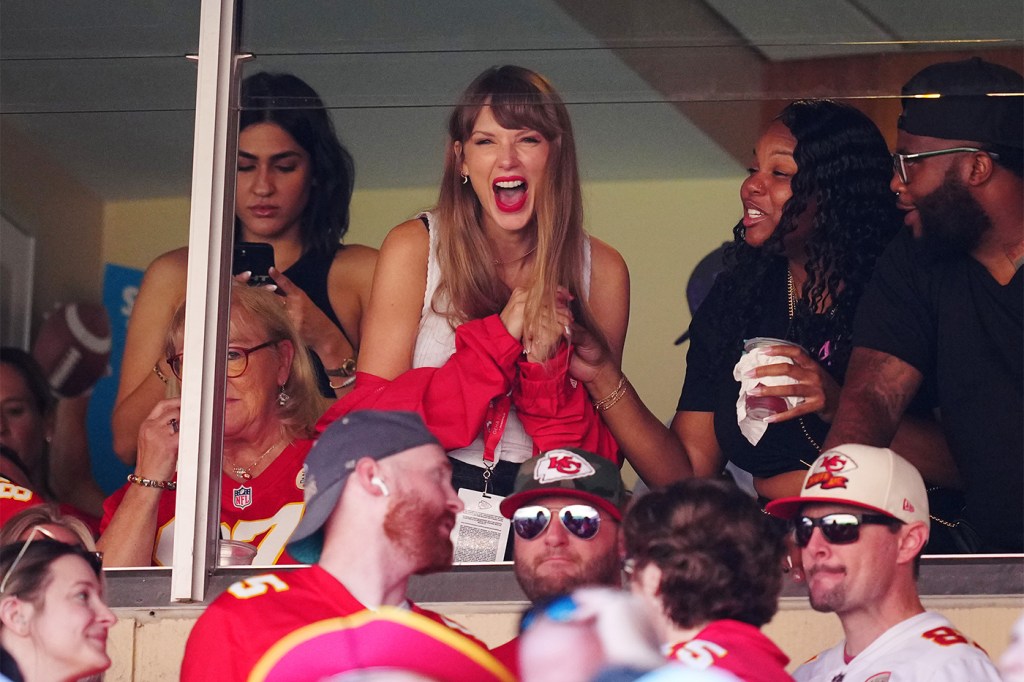Taylor Swift’s boost to voter registration (and to Travis Kelce) — are there any limits to her celebrity?

If you need any more evidence of Taylor Swift’s influence over the broader culture, look no further than two headlines from this week. Here’s one: “Taylor Swift effect: Travis Kelce jersey sales spike nearly 400%.”
Swift attended the Kansas City Chiefs game on Sunday, whereafter she and Chiefs tight end Travis Kelce, who are rumored to be dating, enjoyed a night out together. The outing reportedly resulted in the following, according to Front Office Sports:
- 400% spike in Travis Kelce jersey sales
- Kelce’s podcast ranks #1 overall on Apple
- Kelce adds 383K Instagram followers
- 24.3M viewers, making it most-watched game this week
- 63% jump in female viewers age 18-49
- 3x increase in ‘Chiefs’ searches on web
- 3x increase in Chiefs sales on Stubhub
- Chiefs sold more tickets in a single day since start of season
For a celebrity of Swift’s preeminence, such numbers are hardly surprising — certainly not in the context of entertainment. But then consider that an Instagram message by Swift on Sept. 19 urging her fans to register to vote brought in more than 35,000 new voter registrations, according to Vote.org, and one really begins to grasp the transcendent nature of her stardom.
“This goes beyond marketing,” says Yakov Bart, a Northeastern associate professor of marketing.
It’s perhaps a little amusing to imagine Swifties, as they’re called, buying up jerseys and watching football. But Swift’s command over her fandom is most telling in the response to her get-out-and-vote message, Bart says. Such is the power of celebrity culture in the age of social media, he says.
“Celebrities may become celebrities because they’re so good in a specific domain, but once they achieve celebrity status today, the kind of trust they can develop is really powerful — and extends to all domains of life,” Bart says.
The Taylor Swift effect, as it’s come to be known, is also driving economic data, with traffic from her worldwide Eras tour boosting local economies. Now, it might be getting younger demographics out to the polls this coming election.
Of course, Swift isn’t the first celebrity entertainer to drive culture and mobilize masses. Indeed, the phenomenon is hardly new. Frank Sinatra and other members of the Rat Pack, notably Sammy Davis Jr., famously gave John F. Kennedy’s candidacy what some say was a consequential endorsement in an early example of the intersection of politics and entertainment.
More recently, basketball star LeBron James’ voting rights organization, More Than a Vote, helped staff more than 40,000 poll workers nationwide and, in collaboration with the Legal Defense Fund, sent out more than 1.3 million letters bearing James’ signature to potential voters.
“There’s a longstanding tradition of celebrities and entertainers getting involved in politics to promote their pet causes — whether that’s registering voters or persuading them to vote a particular way,” says Costas Panagopoulos, head of Northeastern’s political science department.
Panagopoulos says that Swift’s bid to get young people to vote is precisely what the populace needs at this moment in time, given longstanding difficulties in getting them involved.
“Politics is so fraught and polarized right now that it’s sometimes risky for celebrities to promote one candidate over another without entering the political frame,” Panagopoulos says. “But voter registration is one way to influence the masses to get involved in a way that may not necessarily be partisan in nature, but is nevertheless political in nature.”
Swift’s ability to galvanize voters further emphasizes how the influence celebrities wield over their fans parallels that of politicians over their constituencies, Panagopoulos says.
The two spheres — celebrity culture and politics — are inextricably linked, he adds.
“For decades now politicians have been leveraging marketing techniques to advance themselves and their candidacies,” Panagopoulos says. “Politicians are branded and marketed like products these days.”
When asked about his newfound fame on his weekly podcast, “New Heights with Jason and Travis Kelce,” the 33-year-old football star said: “I’m on the rollercoaster, man. The rollercoaster of life.”
Tanner Stening is a Northeastern Global News reporter. Email him at t.stening@northeastern.edu. Follow him on Twitter @tstening90.





